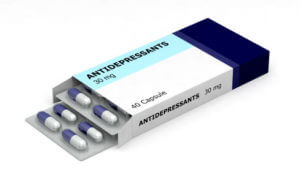
Antidepressants are a type of medication used to treat depression, anxiety disorders, as well as obsessive-compulsive disorders, eating disorders, and certain types of chronic pain. These medications can also prevent such conditions from recurring.
Antidepressants as a treatment can be very effective in easing symptoms of depression and other psychiatric conditions. However, there are known side effects associated with antidepressants.
In this blog, we will discuss the side effects of antidepressant medications and how you can get the care you need if the side effects have become a problem for you.
Known Side Effects of Antidepressants
Antidepressants are generally considered safe and effective for most people, but there are many different types, with some that cause worse side effects than others. Some of the side effects of antidepressants are:
- Dizziness
- Nausea
- Headaches
- Blurry vision
- Anxiety or feeling agitated or shaky
- Insomnia
- Weight gain or weight loss
- Indigestion and stomach aches
- Diarrhea or constipation
- Dry mouth
- Drowsiness
- Sexual dysfunction
In some cases, the side effects of antidepressants go away after a few weeks of treatment, but there have been some reports of the drugs causing chronic negative side effects.
It is important to talk to your doctor about any concerns you have about taking antidepressants, as they may be able to prescribe another type of antidepressant or recommend a way to mitigate the side effects of the medication.
Medication Management as Part of Your Psychiatric Treatment Plan
If your antidepressants give you negative side effects, there are a few things you can do to try and mitigate them. Your choice of provider really matters here, because the best psychiatric providers will work with you and monitor you for any side effects after prescribing medication. They may be able to adjust your dosage, switch you to a different medication, or get you into a routine that includes as few pills as possible.
There are some lifestyle changes you can make that may help lessen the severity of the side effects of antidepressant medications.
For example, eating smaller meals and making sure to have some food in your stomach before taking your medication can help with abdominal or digestive side effects. Drinking cold water throughout the day can help reduce nausea and dry mouth symptoms.
Additionally, exercising regularly and choosing healthy, high-fiber foods have been shown to help prevent weight gain and prevent constipation from antidepressants. Learning relaxation techniques can help you manage agitation and restlessness. Taking naps can help prevent fatigue and drowsiness. If the medication causes insomnia, take it early in the day. If it causes drowsiness, take it at night. Consult your provider to find the best way to take your medication.
The best psychiatric providers can perform genetic testing for medication matching, which eliminates the trial-and-error method and find the medication that works for you – the first time around. Genetic medication matching benefits patients with previous medication failures and who experiences negative side effects from medications.
Genetic Medication Matching and Medication Management Services in Denver and Lakewood, CO
The psychiatric providers at Denver Wellness Associates in Denver and Lakewood, Colorado, offer genetic medication matching and medication management services as part of our comprehensive psychiatric programs. Genetic medication matching combined with medication management is critical because it helps us ensure that the prescribed medication actually helps instead of making life difficult for our patients. We are with you every step of the way because your mental health is our priority.
For any questions or to schedule an appointment with one of our providers, call us at (720) 724-3668, send us an email at info@denverwellness.com, or use our online request form.
